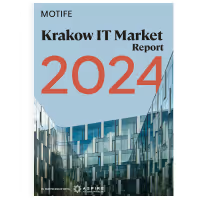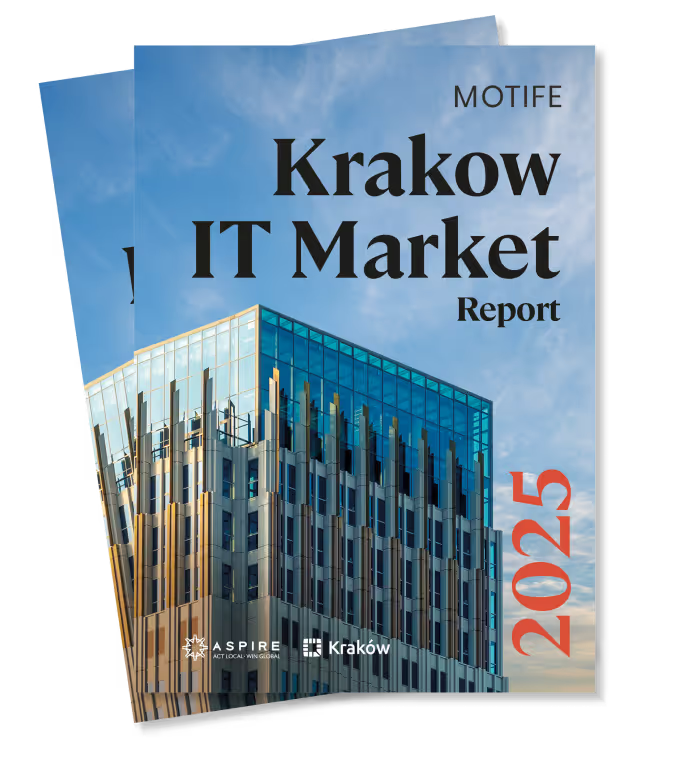Over the past several years, Poland has marked its presence on the global IT map. A combination of robust educational infrastructure, a highly skilled workforce, and strategic geographical positioning makes it an attractive destination for IT companies globally. Polish IT professionals are not just known for their technical acumen, but also for their problem-solving capabilities and adaptability to fast-paced technological shifts. These qualities, coupled with a favorable business environment, have made Poland a magnet for both international tech giants and thriving startups.
A unique aspect of the Polish IT sector is the B2B contract, which is sometimes not fully understood by both foreign and local companies. For IT specialists in Poland, B2B contracts aren't just about defining work parameters and payment details. They primarily serve as a mechanism to enhance their earnings potential and offer them the flexibility and autonomy that traditional employment contracts might not afford.
Check out also: Krakow IT Market Report 2024

In Poland, a B2B (business-to-business) contract refers to a service agreement established between a company in need of specific services and a contracting entity capable of providing those services. Most often, this contracting entity is a registered one-person company, also called a sole trader, self-employed, or sole proprietorship.
For the company, this arrangement means they can access specialized skills or services without the complexities of traditional employment. For the contractor, a B2B contract provides the freedom to manage their schedule, and often earn a higher net income than they might under regular employment. It's a mutually beneficial setup: the company gets the expertise it needs, and the contractor gains autonomy and potentially better financial returns.
Check out also: IT Job Offers from MOTIFE
Personal Income Tax:
For individuals under employment contracts, the personal income tax follows a progressive system. If your annual income is under 120,000 PLN, you'll be taxed at a 12% rate, and for income exceeding that threshold, the rate is 32%. However, under B2B contracts, a flat tax rate of 19% applies, but there's also a progressive option ranging between 12% to 32%. For individuals in IT roles, there's an additional option of a lump-sum tax at either 8.5% or 12%, whereas for other roles, it can go up to 17%.
Social security:
Social security contributions differ as well. Under employment contracts, both employees and employers contribute, with approximately 21% of the gross salary each, capped at 177,000 PLN annually.
In contrast, B2B contractors bear the full burden of social security charges, which consist of flat and variable contributions based on self-employment duration and chosen income tax model.
Cost deduction:
Cost deductions vary based on the contract type. Employers under employment contracts can utilize tax-deductible cost schemes for creative work. Meanwhile, B2B contractors can deduct costs related to their one-person companies, such as hardware and leasing, under flat or progressive tax models. However, those opting for a lump-sum tax have no cost deductions.
Contracts differ in terms of rates, duration, and notice periods. Employment contracts typically involve monthly rates and start with a 3-month probation period, followed by an indefinite contract. Notice periods vary depending on the tenure, ranging from 2 weeks for shorter tenures to 3 months for longer ones. For B2B contracts, rates are often based on a daily or hourly basis, and the contract can be either indefinite or fixed for 1 year, with a typical notice period of 1 month.
In terms of benefits, individuals under employment contracts usually receive annual leave ranging from 20 to 26 days per year. Sick leave is unlimited. Maternity/paternity leave is also provided. Additionally, there's the possibility of non-statutory benefits packages. On the other hand, B2B contractors typically do not receive annual leave, sick leave, or maternity/paternity leave as part of their contract, although custom arrangements may be negotiated. Non-statutory benefits packages are generally not offered to B2B contractors, but custom arrangements can be explored.
Check out also: Krakow IT Market Report 2024

Opting for the B2B contract model presents several distinct advantages for companies.
Talent pool expansion. One of the most prominent benefits is the expansion of the available talent pool. In Poland, B2B contracts appeal to a substantial segment of professionals, accounting for 30-40% of the talent pool. By opting for this model, companies open the doors to a wider range of specialists, many of whom might prefer the B2B structure due to its flexibility and potential financial benefits.
Simplified engagement and minimized risk. International companies can collaborate with B2B contractors and rent flexible office space in Poland without establishing a legal entity there. The absence of directly hired staff eliminates the necessity to manage social security contributions and adhere to other labor law obligations.
A global network of professionals. Last but not least, the world is more interconnected than ever, and B2B contracts offer a gateway to this global network of professionals. Companies are no longer restricted to hiring talent in their immediate vicinity. Instead, they can seek out specialists from around the world, bringing diverse perspectives and expertise into their projects. This not only broadens the talent pool but also introduces varied cultural insights, which can be invaluable in today's globalized market.
Check out also: IT Staff Augmentation services from MOTIFE

Calculating the compensation of a B2B contract often involves nuances. Typically, the net sum presented in a B2B contract might be as much as 15% greater than the gross salary given to permanent employees. However, this disparity largely hinges on the specific terms set within the B2B agreements.
Factoring in the additional workdays contractors might have, due to the absence of paid leave, the annual earnings can elevate further. It's also customary for the proposed amount to vary based on whether the company is hiring B2B contractors directly from overseas or through its Polish entity.
Gross monthly salary on employment contract:
20 000 PLN (4 400 EUR)
Equivalent on B2B contract:
23 000 PLN net + VAT (5 100 EUR net + VAT)
Total monthly cost of employment/engagement comparison:
Check out also: IT Job Offers from MOTIFE

B2B contracts leave a level of flexibility in terms of contractual details and benefits. These are the trends observed for custom agreements in the Poland IT market.
Probation period: None. The first month is usually regarded as a trial period but can be ended at any time as per the notice period.
Notice period: 1 month, however, this can be 2 or 3 months for key individuals in senior positions.
Holidays: There are no paid annual leave and public holidays under the B2B contract. It is up to the contractor to take unpaid days off, in agreement with the company hiring their services. Companies can ask for a B2B contractor to align their number of days off with the permanent employees’ limit, i.e. 26 days of annual leave.
Sick leave: There is no paid sick leave on B2B contract. The contractor needs to take unpaid absence if they are unable to perform their work duties. We observed that some companies allow flexibility in the form of remote and flexible work, or sickness days off fully or partially paid.
Benefits package: B2B contractors are not guaranteed to receive the same benefits package offered to regular employees such as medical coverage, a gym pass, or life insurance. In order to keep attracting talent, we observed that some companies would offer access to these benefits packages to B2B contractors with costs recharged to contractors.
Non-exclusivity: Contractors are allowed to offer services to other companies unless this would violate the competitivity clauses of their contracts.
Opting for a B2B contract can be beneficial for both the employer and the contractor. However, this requires legal advice and must be done with the greatest care to comply with Polish law. Improperly written B2B contracts can be questioned and considered to be employment contracts.
Check out also: MOTIFE EOR services

Integrating B2B contracts into your company's operations in Poland can be a strategic move, but it's imperative to approach it methodically and with a comprehensive understanding of the landscape. Here's a guide to ensuring a smooth transition and avoiding common missteps.
Legal consultation. Before you dive into the world of B2B contracts, consult with a local legal expert who specializes in Polish labor laws and contract negotiations. This ensures your contracts are compliant with local regulations.
Define the scope. Clearly delineate the responsibilities, expectations, and deliverables. A vague contract might lead to misunderstandings, missed deliverables, and potential disputes.
Decide the contract type. As previously discussed, B2B contracts in Poland have different taxation models and benefits structures. Decide which model best suits both your company's and the contractor's needs.
Financial aspects. Ensure that the compensation offered is competitive and fair. Remember, B2B contractors handle their taxes and don't typically receive the same benefits as permanent employees, so their rates might be higher to compensate.
Drafting the contract. Collaborate with legal experts to draft the contract. Ensure it covers essential aspects like data protection, confidentiality clauses, dispute resolution, and termination conditions.
Misclassification. Do not mistake a B2B contractor for a regular employee. They are not bound by the same employment laws, and misclassification can lead to legal complications.
Neglecting communication. Just because B2B contractors are not employees on permanent employment contracts don't mean communication should lag.
Overlooking cultural differences. If hiring international B2B contractors, be mindful of cultural nuances. This includes not just communication styles but also working hours, holidays, and business etiquette.
Skimping on onboarding. While B2B contractors are experts in their field, they still need an introduction to your company's processes, tools, and culture. Proper onboarding ensures they launch fast and successfully.

Navigating the intricacies of the Polish labor market can be challenging, especially when direct B2B contracts aren't feasible for your business. In such cases, the solution might lie in leveraging Employer of Record (EOR) services. Global or local EOR providers can act as intermediaries, ensuring a seamless employment experience without the complexities of direct B2B contracts. Here's a deeper dive into how EOR can serve as a valuable alternative.
An Employer of Record services provider is an organization that handles administrative, payroll, and HR responsibilities for companies wishing to employ staff, without establishing a full legal entity in the host country. Essentially, the EOR provider "employs" the individual on behalf of the hiring company, managing all the legal and administrative aspects.
Rapid expansion. For companies keen on quick market entry without the administrative load of setting up a local entity or navigating the complexities of B2B contracts, EORs can be the right solution.
Trial periods. If a company wishes to test the Polish market before committing to a full-fledged operation, hiring through an EOR provider allows for flexibility without long-term obligations.
Complex regulatory environment. If the legal and compliance requirements of hiring B2B contractors directly seem daunting, EOR providers absorb these challenges, ensuring full compliance with local laws.
Diverse talent acquisition. Sometimes, the perfect talent isn't local. EOR providers can simplify the hiring of international talent, managing visas, and work permits on behalf of the hiring company.
Short-term projects. For projects with a limited duration where setting up direct B2B contracts might be excessive, EOR providers offer a streamlined alternative.
Simplified process. EOR providers handle all the nitty-gritty details from payroll, and taxes, to compliance, allowing companies to focus solely on the operational aspects of their business.
Flexibility. Companies can scale their workforce up or down without direct administrative challenges, making it easier to adapt to market changes.
Risk management. EOR providers ensure compliance with local employment laws, minimizing the potential legal pitfalls a company might encounter when dealing directly with B2B contracts.
Cost-efficient. While EOR services come at a price, they can often result in overall cost savings when considering the potential legal complications and administrative burdens they help avoid.
Check out also: MOTIFE EOR services
IT Staff Augmentation from MOTIFE offers a strategic alternative for IT companies, facing challenges on direct B2B contractors. This service provides a flexible and tailored solution, enabling companies to scale their workforce in response to specific project needs or technological advancements. With MOTIFE, businesses can access a pool of specialized talent, ensuring the right skills are available when necessary, without the commitments of B2B contracts. This model promotes cost efficiency and seamless integration of skilled professionals into existing teams, fostering a more dynamic and responsive work environment.
Check out also: MOTIFE IT Staff Augmentation services
Are B2B contracts in Poland legally binding like traditional employment contracts?
Yes, B2B contracts in Poland are legally binding agreements, just as traditional employment contracts are.
Are there industry standards or templates for B2B contracts in Poland?
While there isn't a one-size-fits-all template, there are commonly accepted frameworks and clauses specific to various industries. It's advisable to consult a legal expert or a consulting firm in Poland to ensure your contract aligns with best practices.
How do intellectual property rights factor into B2B contracts in Poland?
Intellectual property rights are typically outlined explicitly in the contract. It's crucial to define who retains the rights to any work produced — be it the hiring company or the contractor — to avoid any potential disputes.
What are the key components of a standard B2B contract in Poland?
Key components often include scope of work, compensation details, duration of the contract, terms of termination, confidentiality clauses, and intellectual property rights.
How are B2B contracts perceived in Poland vs. the United States?
Within the IT industry in Poland, B2B contracts and self-employed status are not seen as a freelancing or entrepreneurial model, as is often the case in the United States. In Poland, these arrangements are predominantly viewed as a means to enhance net income rather than solely focusing on the entrepreneurial aspect. B2B contractors are subjected to a considerable degree of treatment similar to that of regular employees.
How does the process of engaging an Employer of Record provider differ from traditional B2B contract management?
Engaging an Employer of Record (EOR) provider involves partnering with a third-party entity that manages employment-related responsibilities on your behalf. In contrast, traditional B2B contract management entails a direct agreement between a company and a contractor, with both parties managing their respective responsibilities.
What benefits can a professional expect when entering a B2B contract compared to a traditional employment contract?
B2B contracts often offer professionals greater flexibility, potential for higher earnings, and increased autonomy in how they manage their work. However, they also have to handle their own tax deductions and might not have access to the same benefits as traditional employees.
Learn more about what international companies have achieved with their Krakow tech labs by downloading our Krakow IT Market Report 2025
.avif)
If you are interested in setting up your own engineering hub in Poland, contact us at MOTIFE to learn more.
If you are looking for interesting job opportunities in tech companies in Poland, check out open roles at motife.com/jobs.
Explore essential data on Poland's tech landscape.


View all job offers

Download the report

Read the full client story

.png)